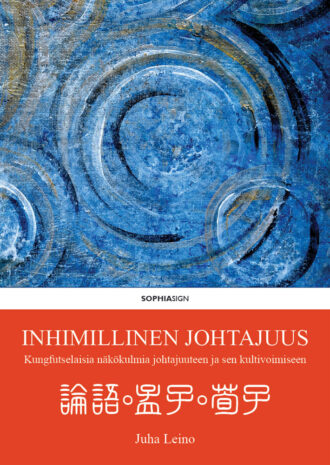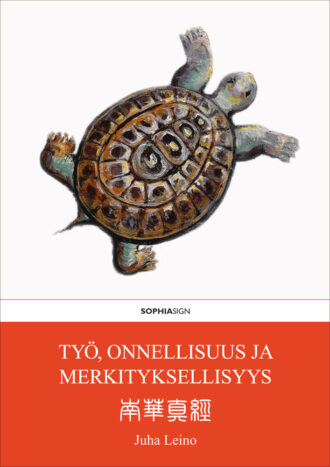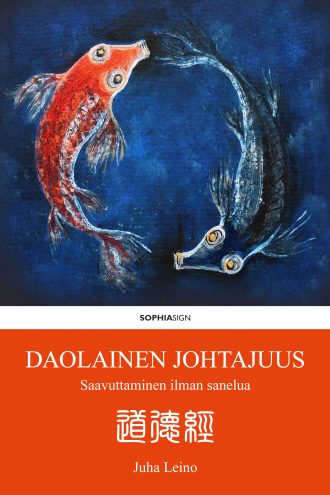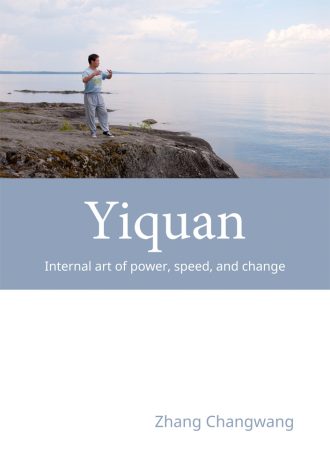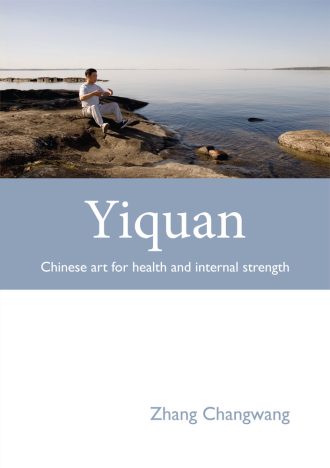Yiquan musings and translations of old texts from China and elsewhere
This website is very much a work-in-progress. It even has two domain names: cupofclay.com and yiquanlab.com. While eventually I do plan to add more content here (more on that below the books), right now it is mainly a place where I promote the two books written by my Yiquan teacher, Master Zhang Changwang, and the three books on leadership based on the principles of Daoism and Confucianism that I have written myself. While the two Yiquan books are in English, the books by me are only available in Finnish.
Books
I don’t actually sell these books. If you live in Finland, you can buy them on the publisher’s online store: SophiaSign.fi. I have an affiliate agreement with SophiaSign, so if you enter this discount code when purchasing any of these four books there, you get a 10% discount on them (and I get a small cut, too): hkv23-3001.
However, if you live outside of Finland but inside Europe, thanks to the way the postal fees go, it is actually cheaper for you to buy my books or Master Zhang Changwang’s book Yiquan: Internal art of power, speed, and change on some other store with lower postal fees, such as Booky.fi. (As I am in no way affiliated with them, I cannot give you any discount code there.)
The caveat is that Master Zhang Changwang’s first book, Yiquan: Chinese art for health and internal strength, is not available on any other online store than SophiaSign (as far as I know). If you want that book and some other book(s) that SophiaSign sells, you might as well buy them all on SophiaSign, since in most cases one postal fee will cover them all. This way you maximize the amount of money that the author and the small publisher get.
Jo noin 2500 vuotta sitten Kungfutse oli huolissaan oman aikansa hallitsijoiden ja virkailijoiden inhimillisyysvajeesta, joka luonnehtii vahvasti myös nykyjohtamista. Hän tarkasteli menneisyyden viisaiden johtajien hallintotapaa ja uudisti löytämiään malleja ja…
READ MORE »
Kokeaksemme elämämme tarkoitukselliseksi tarvitsemme tavoitteellista ja tuottavaa tekemistä. Ihmiset, jotka kokevat merkityksellisyyttä työssään, voivatkin muita paremmin henkisesti ja fyysisesti. Käytännössä kuitenkin neljä viidesosaa meistä lähinnä odottelee työpäivän loppumista kokematta työn…
READ MORE »
Daolainen johtajuus perustuu Daodejingin (Tao te ching), noin 2 400 vuotta sitten kirjoitetun daolaisen filosofian yhden pääteoksen, näkemykseen valtakunnan viisaasta johtamisesta. Sen mukaan viisas johtaminen on huomaamatonta: kun asiat hoituvat ja saavutuksia syntyy, ihmiset…
READ MORE »
Yiquan, or Intention boxing, is an internal Chinese martial art that aims to develop the human being as a unified whole. Instead of teaching techniques or sequences of movements, its training…
READ MORE »
Yiquan is an internal Chinese art for healing and strengthening the body-mind. Even though the style was born as a martial art, its founder Wang Xiangzhai placed a special emphasis…
READ MORE »
Contents to come
Yiquan: The art and joy of formless motion
Yiquan is an internal martial art that teaches a formless art of power, speed, and change. Instead of teaching pre-defined sequences of movements or techniques, it allows the practitioner to develop their abilities, or attributes. The hardness of power is balanced with the softness of listening ability that allows the practitioner to flow with the ever-changing situation. Although the basic training method of Yiquan, or intention boxing, is zhan zhuang, or stationary posture training (also known as standing meditation), formless motion can subsequently be expressed alone, as in jian wu, or health dance, or together with a partner, as in tuishou, or pushing hands, training.
I have trained Yiquan with Master Zhang Changwang since 1994 (when I moved to Beijing). I have translated both his books into English, in both cases together with Ms. Terhi Mikkolainen, edited the English editions, and done the cover and layout for the books. As I am his only non-Chinese official student to speak Chinese, I have translated most of his seminars, as well as small-group and individual teaching sessions, outside of China.
Besides translating and commenting on old texts, I plan to write here a bit about my thoughts on Yiquan.
Translations of old texts
I plan to translate various old philosophical texts from China, such as Daodejing (Tao te ching), poems from various cultures (mainly from China and Turkey), and classical Yiquan texts (and perhaps some other Chinese health and martial arts texts) over time. I don’t simply plan to translate the texts but to try and help the reader understand them a bit deeper with commentary. As this work takes time and effort, they will be coming slowly. Right now, there are not any yet.
Newsletter
As any translations and other writings will come slowly, if you want to get heads-ups about new content in your email, you can subscribe to my newsletter. I use this newsletter to let people know about new articles on this website and new books with which I’m somehow involved (as a writer, editor, AD, photographer, and so forth, or if they are written by people I know). Occasionally, I might also mention some events, such as seminars, with which I’m involved, but that’s about it. My laziness is a sure-fire guarantee that there will not be that many newsletters.
You can naturally unsubscribe at any time. Before subscribing, please, do read our Terms & privacy. By subscribing you confirm that you are at least 16 years old (as required by GDPR).
I use MailerLite, a third-party provider, to manage the email marketing subscriber list and to send emails to the subscribers. MailerLite’s privacy policy is available here.
About
My name is Juha Leino. I started to practice Chinese health and martial arts at the end of the 1980s while studying in Canada. After returning to Finland for about 2 years, I moved to China to practice health and martial arts in 1994. At the same time, I studied Chinese language at the Beijing Language Institute.
I am interested (among many other things) in old cultures, old philosophical texts (the word philosophical to be understood in a wide sense), and poetry, as well as health and martial arts of the world. While we cannot perhaps always apply the old philosophical texts to today’s life directly, they do provide us a mirror that allows us to ponder ourselves and the human experience of existing in the world.
While I am perhaps most versed in old Chinese philosophical texts, such as Daodejing (Tao te ching), my curiosity is by no means limited to them, although for language reasons they are a bit more directly accessible to me than, say, old Persian texts. Consequently, Chinese texts will have a more prominent place in my musings on this website.
My goal is not to simply provide translations and commentaries on this website. Rather, I also wish to open the thinking behind them – the reasons why I chose to translate things the way I did – so that the translation does not become a prison for the reader (who perhaps cannot read the original text) but a chance for them to form their own opinion about it. I am perfectly aware that this is practically impossible but why go for the low-hanging fruit? To try and fail is better than never to try at all.

